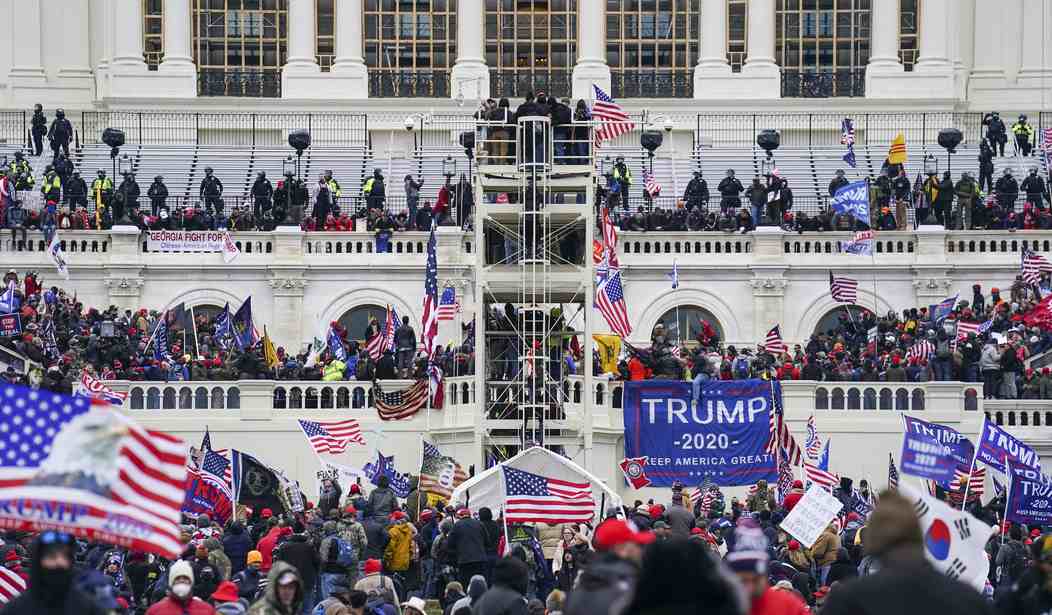The U.S. Court of Appeals for the District of Columbia Circuit is one of the most liberal courts in the country. But even these judges found the sentences for "interfering with the administration of justice" for the January 6 defendants to be outrageously long.
The appeal grew out of the case of Larry Brock, one of the rioters, who was sentenced to two years in prison. One of the enhancements in his sentencing was "interfering in the administration of justice," a claim that the court rejected.
“Brock’s interference with one stage of the electoral college vote-counting process — while no doubt endangering our democratic processes and temporarily derailing Congress’s constitutional work — did not interfere with the ‘administration of justice,’” D.C. Circuit Judge Patricia Millett wrote in a unanimous ruling, joined by Judges Cornelia Pillard and Judith Rogers.
It's unknown how many rioters could have their sentences reduced or commuted as a result of this ruling. The ruling could potentially affect 330 cases of obstruction. The Supreme Court will take up another similar case in April involving Pennsylvania police officer Joseph Fischer which also has ramifications for J6 rioters.
William Shipley, an attorney who has represented several Jan. 6 defendants, including “Qanon Shaman” Jacob Chansley, told the Washington Examiner that the reverberations from the D.C. Circuit’s decision are “potentially huge.”
“But it will be meaningless if the Supreme Court throws out 1512 in the Fischer case,” Shipley said, noting that the forthcoming case could potentially upend obstruction charges for every defendant sentenced under that statute for their actions on the day of the riot.
“Basically, if the Supreme Court ruled in favor of Fischer, what it’s saying is the statute doesn’t apply to the proceedings on Jan. 6, it wouldn’t apply to anybody,” Shipley said.
Because of the broad scope of the ruling in D.C., Shipley said, “You might see a flood of motions for release pending appeal” from defendants currently in prison.
That might be good news for some. But it's the Fischer case, which the court will hear in April, that has the potential to upset the apple cart for DoJ.
The Fischer case involves the definition of "obstruction of an official proceeding," which includes “corruptly” obstructing, impeding, or blocking an official government proceeding. In this context, what did the J6 defendants do to "corruptly obstruct" Congress?
Trump was charged with this same offense and made a strong argument in October as to why the charge should be dropped.
Attorneys for the former president wrote in an October filing seeking to dismiss the case that Smith’s indictment inappropriately applied the statute in question to their client. The “indictment takes a statute directed at the destruction of records in accounting fraud and applies it to disputing the outcome of a Presidential election. This stretches the statutory language beyond any plausible mooring to its text,” the attorneys wrote.
The charge in question carries the stiffest penalty available to prosecutors so far in the Jan. 6 cases they’ve brought, and it has also been applied to several notable figures involved in the riot, including Enrique Tarrio and Stewart Rhodes, leaders of the groups the Proud Boys and the Oath Keepers, respectively. Tarrio was sentenced to 22 years in prison in September, and Rhodes was sentenced to 18 years in May.
The ruling by the D.C. Circuit Court is encouraging. Whether it will convince SCOTUS is another story.










Join the conversation as a VIP Member